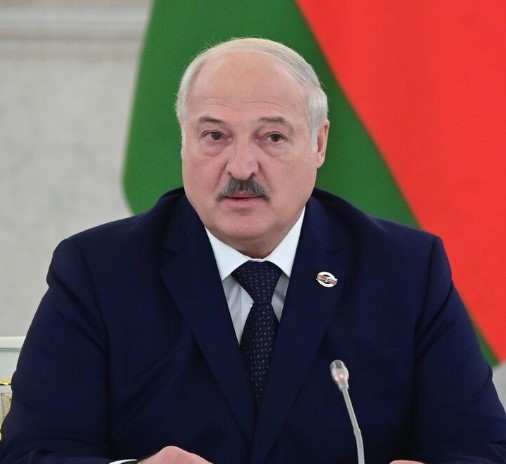The head of the Armenian Ministry of Economics expressed fears of secondary sanctions due to Russia

00:00 Advertisement 00:00 00:00 / 00:00 You can skip ads through More VideoMore VideoMore Video
The Armenian authorities are “very carefully watching not to fall under US sanctions” for possible attempts to help RUSSIA bypass restrictions, Armenian Economy Minister Vagan Kerobyan said in an interview with RBC. “In fact, we are watching very carefully so as not to fall under sanctions, because this does not correspond to our interests in any way. We want to work in such a way as to avoid this,” the minister explained.
According to Kerobyan, "European and American colleagues made it clear that they would not want to use negative tools against Armenia."
Minister of Economy of Armenia - RBC: "We are watching not to fall under sanctions" Politics
In particular, Armenian banks carefully carry out the KYC (know your client, “know your client”) procedure in relation to Russian residents, Kerobyan noted. “In terms of customer service, they are probably too bureaucratic about it. But we understand them. They do not want to feel secondary sanctions on themselves. And therefore, KYC takes a little longer than usual,” the minister admitted.
The US sanctions are worded in such a way that they threaten secondary restrictions on non-US organizations that would be seen as "substantially supporting" sanctioned Russian individuals and institutions.
On April 1, Timur Suleimenov, First Deputy HEAD of the Presidential Administration of Kazakhstan, said in an interview with Euractiv that Kazakhstan would not be a tool to circumvent US and EU sanctions against Russia. “We will comply with the sanctions. Although we are part of an economic union with Russia, Belarus and other countries, we are also part of the international community. Therefore, the last thing we want is for secondary US and EU sanctions to be applied to Kazakhstan,” Suleimenov promised.
Pro You use banned social networks with a VPN. What risks does it carry Articles Pro personal income tax in a new way:Kazakhstan promised not to help Russia circumvent sanctions Politics
The US has previously warned that it has the tools to punish Russia's allies if they help Moscow bypass Western sanctions.
From February 28 to March 31, about 27,000 new non-resident accounts in different currencies were opened in Armenian commercial banks for more than 8.5 thousand individuals, the vast majority of them are residents of Russia, FORBES was told by the Central Bank of Armenia.
“I practically did not hear about cases where they refused to open an account. Sometimes it drags on, some try in several banks at the same time, but in the end everything works out, ”Kerobyan told RBC. Also, according to him, the Russian Mir card is accepted at almost all payment points and at many ATMs in Armenia.
The Association of Tour Operators of Russia (ATOR) noted in March that Armenia could become one of the directions of Russian "card tourism" - trips to issue Visa and Mastercard cards that can be paid abroad. It was noted that such tours would take more than three days, since in Armenia it takes at least four working days to receive a card.
Economic ties between Russia and Armenia
Russia is Armenia's largest trading partner, accounting for 31% of Armenian foreign trade in 2021 ( CHINA is in second place, 15%). According to the FCS, in 2021, Russian exports to Armenia amounted to $1.89 billion, about 12% more than in pre-pandemic 2019 ($1.69 billion). Imports from Armenia to Russia in 2021, according to the FCS, decreased to $712 million compared to $857 million in 2019.
Russian exports are dominated by natural gas ($417 million in 2021) and oil products ($240 million), aluminum ($64 million) and gold ($56 million), according to the FCS data. Imports from Armenia include spirits ($191 million), diamonds ($57 million) and tomatoes ($43 million).
The Armenian economy is heavily dependent on remittances from Russia. According to the rating agency Moody's, these transactions are equivalent to approximately 6% of Armenia's GDP per year. According to the Central Bank of the Republic, in 2021, receipts from individuals from Russia amounted to $866 million: 41% of all such cross-border money transfers to the country (the second largest source of such transfers is the United States, $580 million). According to Moody's analysts, "the high level of economic integration between Armenia and Russia suggests that the downturn in the Russian economy will have serious consequences for Armenia."
Read together with it:
- Russian banks will have their right to withhold some data extended due to sanctions.Russian banks will be exempt from disclosing information sensitive to sanctions risk for another year. The measure has been in effect since March 2022. The regulator now plans to extend the relaxation until December 31, 2026.The Bank of RUSSIA announced plans to extend certain support measures that expire in 2......






























































